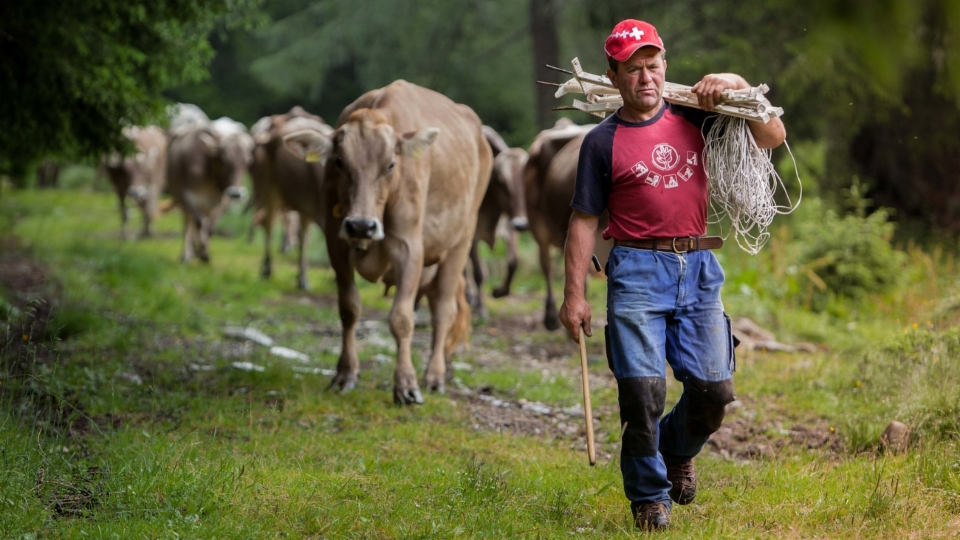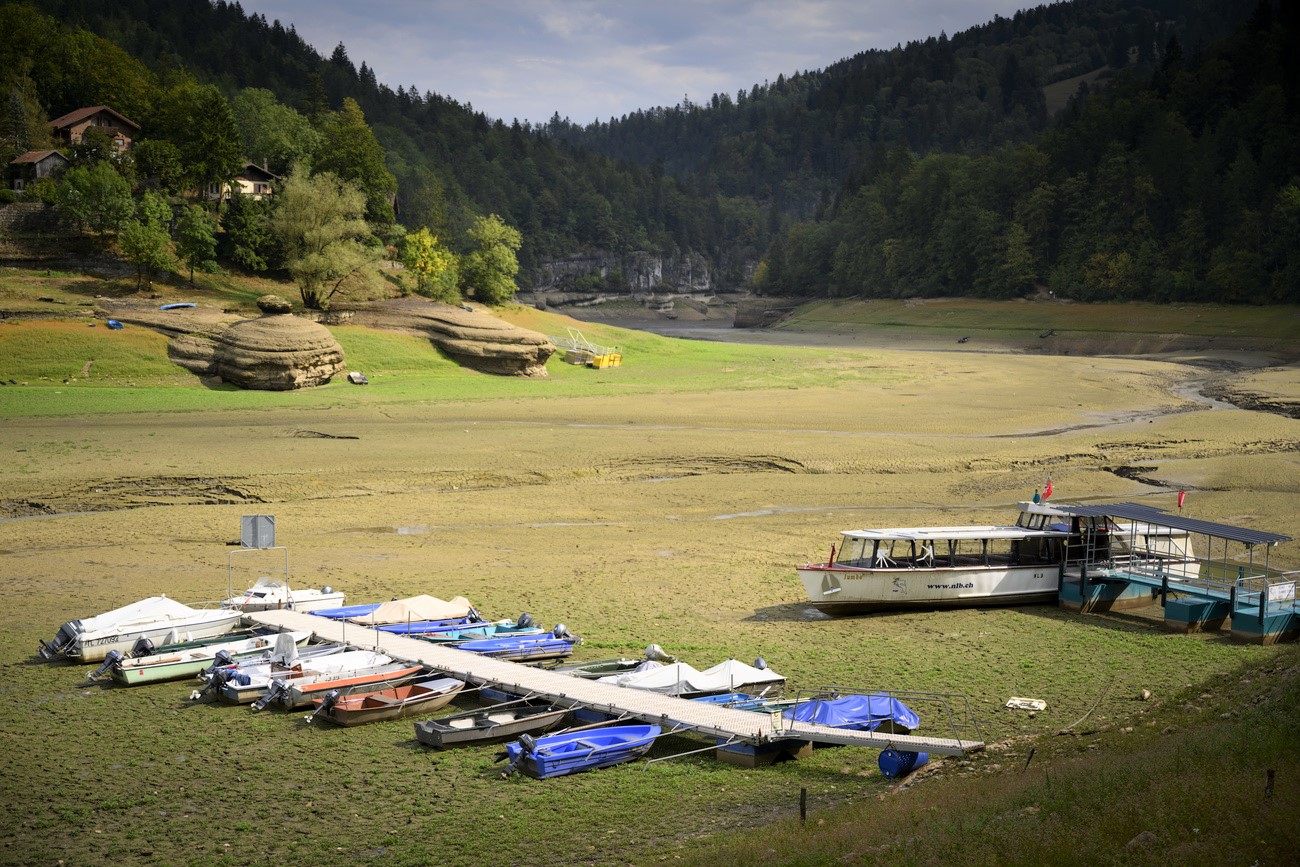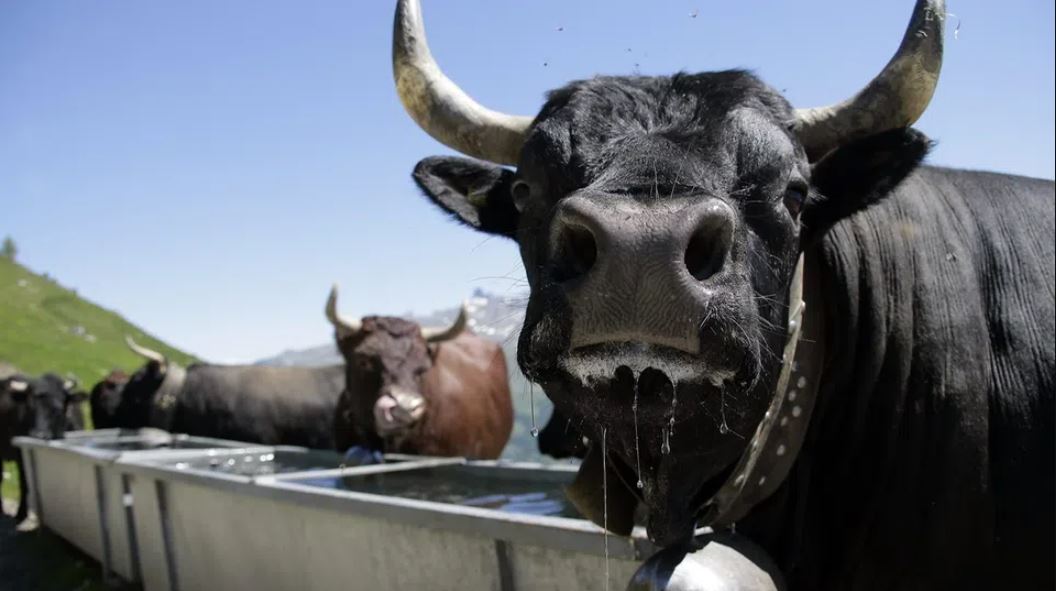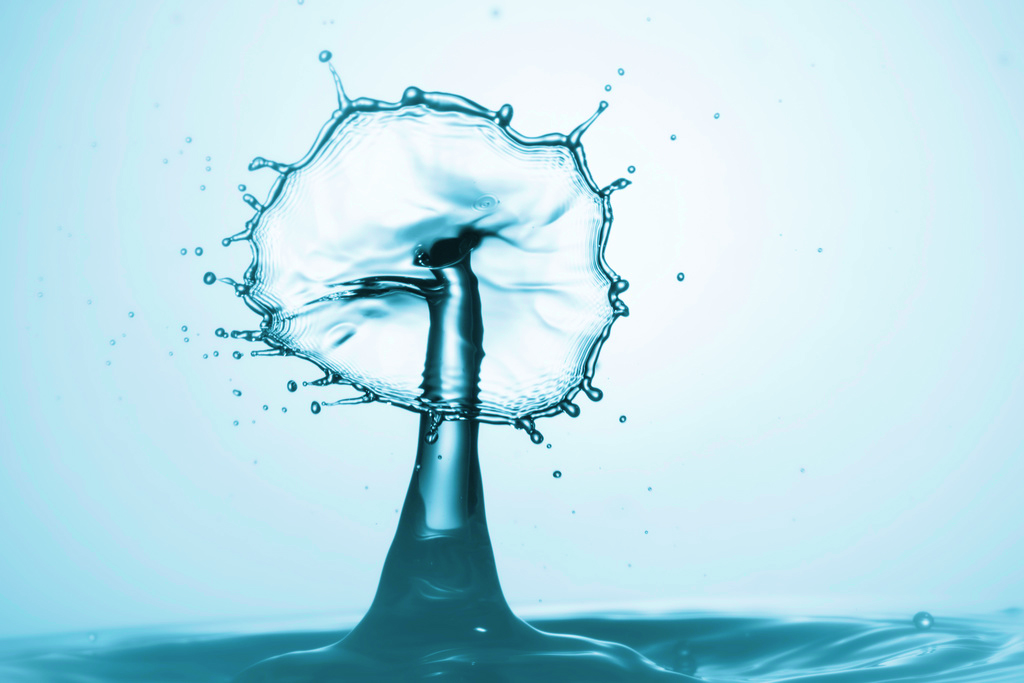Alpine farmers prepare for water shortages

Reduced rainfall and receding glaciers: in Switzerland, alpine farmers are in need of fresh water for their farms.
André Windlin, director of canton Obwalden’s ministry for agriculture and environment, did not think that the water situation in the mountains in his region would worry him again this year after the dry summer experienced in 2022.
“After all the precipitation in the spring, I assumed that we wouldn’t have any problems this time,” says Windlin. “But in the meantime, many springs are again giving out less water than usual.”
Luckily, for the moment, there are no severe issues with the water supply in Obwalden. Whether it will stay that way, however, is uncertain.

More
Why water-rich Switzerland needs to monitor droughts
Warm winters, dry summers
As a result of another reduced snowfall this past winter, meltwater, the water produced from melted snow, could remain scarce.
Meltwater flows from the high mountains to lower altitudes, and if the rain remains scarce in the coming weeks, the situation could become critical for alpine farms. A cow drinks an average of 100 litres of water on a hot day.

For Switzerland’s central cantons, the situation is even more tense. Though the foothills and northern regions of the Alps had some local thunderstorms in June, canton Schwyz did not benefit from the storm.
There, the supply of fresh water for people and animals is secure for the moment. Yet Daniel von Euw, managing director of the Oberallmeind Corporation, warns that “the dry summers are becoming more frequent, and the situation is critical in some places”.
Alpine farmers must be ready to face dry summers
With more than 9,000 hectares of forest, the Oberallmeind Corporation is the largest non-state forest owner in Switzerland. It also owns around 8,000 hectares of alpine pastures, which are managed by 155 farmers.
The Oberallmeind Corporation, along with other companies, is in the process of preparing itself for increasingly dry summers.

More
Water shortage: Switzerland’s blue gold is under pressure
“We try to keep as much water as possible up in the mountain pastures,” says von Euw. For the farmers, this means that previously reliable spring water reserves are being recaptured, the water stored in newly built reservoirs or channelled into existing natural ponds.
Several such construction projects are underway and two are nearing completion. One project involves not letting water seep away through the mountains to emerge again in the valley below – but retaining it higher up in the Alps.
Cost of water projects increasing
The cost of this latter project comes to around CHF2 million ($2.33 million). And with climate warming, the costs for comparable construction projects are also likely to rise.
According to the Federal Office for Agriculture, the Swiss government and cantons spent around CHF22 million on water supply projects for alpine pastures last year. By comparison, the figure in 2013 was CHF4.3 million.
For von Euw, it is clear that cooperation between alpine farms must improve. “In the past, each one looked out for itself to make sure it had enough water. If people organise themselves better across regional borders, bottlenecks can be alleviated.”

In compliance with the JTI standards
More: SWI swissinfo.ch certified by the Journalism Trust Initiative








You can find an overview of ongoing debates with our journalists here . Please join us!
If you want to start a conversation about a topic raised in this article or want to report factual errors, email us at english@swissinfo.ch.